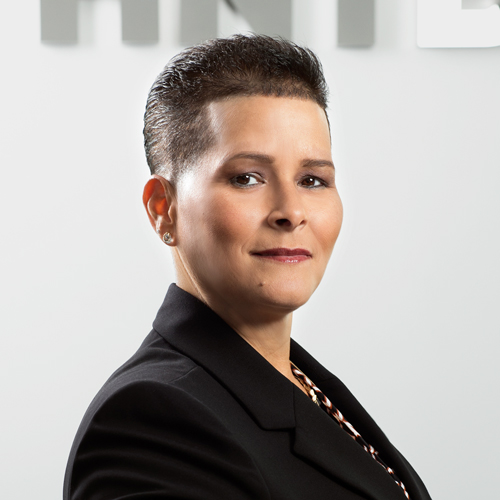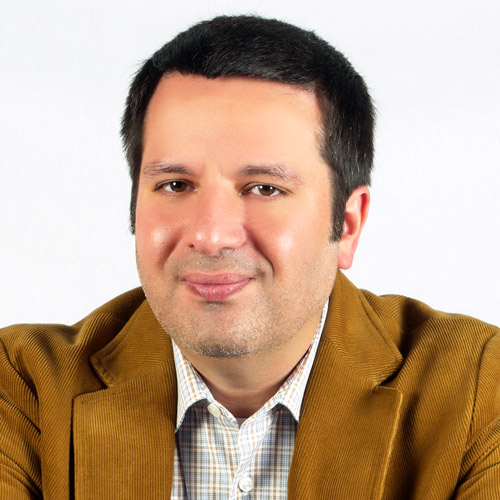Since she can remember, Arlene Quiñones Perez has been curious about politics. What began as an interest turned into a large focus of Perez’s career today. In addition to being a partner at law firm Decotiis, FitzPatrick & Cole, the New Jersey native stepped in as president of the Hispanic Bar Association–New Jersey (HBA–NJ) in November 2015. In late summer this year, she sat down with Hispanic Executive before catching up on work after attending the 2016 Democratic National Convention. She discusses her passion for politics and how the HBA plays a vital role in empowering the Latino legal community.
Hispanic Executive: How did you get your start in the political arena?
Arlene Quiñones Perez: I started working on Jim McGreevey’s campaign for governor when I was twenty-one years old. I was the assistant to the director of the campaign. I learned a lot about work ethic because the hours were long, but we became a little family. After the campaign, I worked in McGreevey’s transition team. It was a fascinating experience. You see how the departments restructure as the new administration comes in. I worked in the governor’s office for a number of years as the executive assistant to the deputy chief of staff. We were the legislators’ main contact to the governor’s office, so we worked a lot with them on bills.
HE: What did you enjoy most about being involved in those political discussions?
AQP: Making change. For example, when I talk about budgets that are affecting the Latino community, you can be the voice at the table that can say, ‘Hey, there’s a reason that wouldn’t be a good idea.’
HE: How is HBA–NJ helping make change?
AQP: The HBA–NJ plays a unique role. The HBA–NJ was founded in 1980 and represents the interests of attorneys, judges, law professors, and law students who share a common interest in resolving the issues affecting Latinos within the legal community. As attorneys, we know how to interpret bills as they come through the legislature and can provide those legal insights that might not be brought to the table.
HE: What are some of the other initiatives you want to focus on during your time as president?
AQP: One thing I want to see happen this year is a gubernatorial debate in New Jersey led and held by the Latino community. We’re coming up on a big gubernatorial election. It hasn’t happened before in the Latino community, but it would be great because it’s about education and making sure the community is aware of the issues.
HE: Why do you think there hasn’t been a gubernatorial debate in the Latino community?
AQP: Sometimes it can be difficult to organize the community as a whole. We’re one entire community, but there are so many different layers. Puerto Ricans have different concerns from Dominicans or Salvadorians, so that can create an issue, but when we are united with the numbers we have, it’s a significant voting bloc.
The Hispanic Population in New Jersey
As the Hispanic population grows, Arlene Quiñones Perez believes that representation in the government is more vital than ever
19% of the population in New Jersey is Hispanic
24% of students enrolled in
K–12 in New Jersey are Hispanic
59% of eligible Latino voters in New Jersey will be registered for the 2016 presidential election, in line with the national average
Sources: www.pewhispanic.org/states/state/nj/
www.cnn.com/2016/04/20/politics/new-jersey-latino-voters/
HE: Any other initiatives you want to push forward?
AQP: I want to see HBA–NJ strengthen its connections with elected officials in New Jersey. I think this year is an important year, with the presidential election and next year with the gubernatorial election. We are nonpartisan, but we want to make sure we are a part of the process and can be a resource to the individual who takes office, whether it’s drafting legislation or helping look for qualified candidates to serve on the bench.
HE: How do you feel about stepping into Carlos Bollar’s shoes?
AQP: Carlos is an amazing attorney and has been an excellent president. I will be the 37th president. We have presidents who are currently county prosecutors and federal judges, so I think it’s a big role to go into, and the organization has such a history. I just want to make sure we continue with the legacy that has been left to us.
HE: Can you tell me about what made you want to get involved with HBA–NJ?
AQP: I joined as a law student. My sisters and I were the first to graduate high school and college and go on to graduate school. For me, it was nice to have an organization where they were willing to mentor and connect me with other individuals, whether it was learning how to interview or dress for an interview. Like most first-generation families, my parents were not able to provide that support, so it was nice to have an organization to provide that guidance.
HE: Where did you learn your work ethic?
AQP: My parents. My dad worked very hard. He would work all day long and then come home and work on something around the house. My mom was the same way. I think they instilled the importance of working hard because that shows who you really are.
HE: Why do you think it’s important to help out the youth?
AQP: It’s a responsibility that all of us who have become successful have to pass along. That is what the HBA–NJ is all about. It’s making sure the next generation has whatever they need in terms of connections or resources in order to be successful. Our job is to open the door and make sure someone is there for them.
HE: What would you say are the biggest challenges in your career?
AQP: Working in a predominantly white, male community. I practice a lot of labor law and most of the rooms I’ve ever been in, from the time I was twenty-one until now, have been white males. It certainly makes you aware of who you are and where you come from.
HE: Did you ever feel intimidated?
AQP: I used it as an asset because I had a voice that no one else knew. When you’re dealing with issues, especially in a state like New Jersey, which is 19 percent Latino, it’s important to have some sort of voice for that community in government. I don’t have a problem being that voice.
HE: Can you tell me about HBA–NJ’s mentorship program?
AQP: Over the last few years, we have started two chapters in high school. This year, my role was to review the résumés from the mentors and mentees and match them based on similarities. We set up workshops so the mentors and mentees can meet each other. From there, we monitor the relationships. It’s nice to talk to these kids, see them grow, apply to college, and even work at firms. Some of these students are so receptive and really want to do well. Personally, I love mentoring young women. In my firm, I have a mentee who is now working as an associate, and we have another who interns for a judge I used to clerk for. As mentors, we can open doors for mentees. It’s what we all should be doing for each other.

